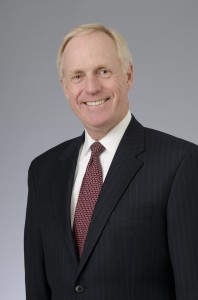
The social media revolution, or evolution, has taken off in Canada, particularly within law enforcement agencies. As an observer, and active participant in social media, it has become apparent that one of the benefits of embracing social media in Canada is how it is strengthening our alliance with law enforcement organizations in the United States.
This cross-border relationship serves to enrich programs, reinforce professional relationships and improve communications, which ultimately benefit public safety initiatives in communities everywhere. As a life member of the International Association of Chiefs of Police (IACP) and the FBI National Academy Associates (FBINAA), I was very pleased to learn that my new organization, American Military University (AMU) and its parent, American Public University System (APUS), is embracing social media as a means of connecting with modern people in a modern world.
This is particularly satisfying when serving as AMU’s representative in Canada where I continue to be active as a life member of the Canadian and Ontario Associations of Chiefs of Police. Both of these organizations have mobilized social media initiatives on a national, and international, scale and the networks of cooperation continue to improve service to the public.
These networks are invaluable and a whole corps of social media champions has emerged in both countries. Take Twitter for example. In recent weeks, I have become aware of unique issues and events that have surfaced in the United States and been reported by American news sources. The simple act of “retweeting” has made it possible for me to share this information with Canadian colleagues who I know to have a genuine interest in the subjects described in these stories. I have had the same thing happen in reverse. It seems that social media opens up new pathways for information sharing. It’s very satisfying to be on one of those paths.
What is most interesting is the extent to which these agencies routinely connect and overlap locally, regionally and internationally. For example, police officers from California are interacting with colleagues in British Columbia; IACP social media policy experts benefit from the participation of police practitioners in Ontario; media relations officers in Kentucky share their success stories with friends in Alberta; IACP connects with FBINAA who interacts with AMU whose representative is supporting OACP on a program conceived by CACP. The list of success stories go on and on. These networks are built on cooperation and supported by technology to accelerate the delivery of relevant information to a workforce on the move.
The Canadian Association of Chiefs of Police will host its first SMILE (Social Media, the Internet and Law Enforcement) Conference in Vancouver, British Columbia, March 25-28, 2012. American Military University will be participating in the educational trade show and regular conference proceedings. This may well be the social media event of the year for Canadian policing. The early responses from registered delegates indicate this gathering will bring a whole new level of excitement to the social media movement in law enforcement.
~Michael Sale
Comments are closed.